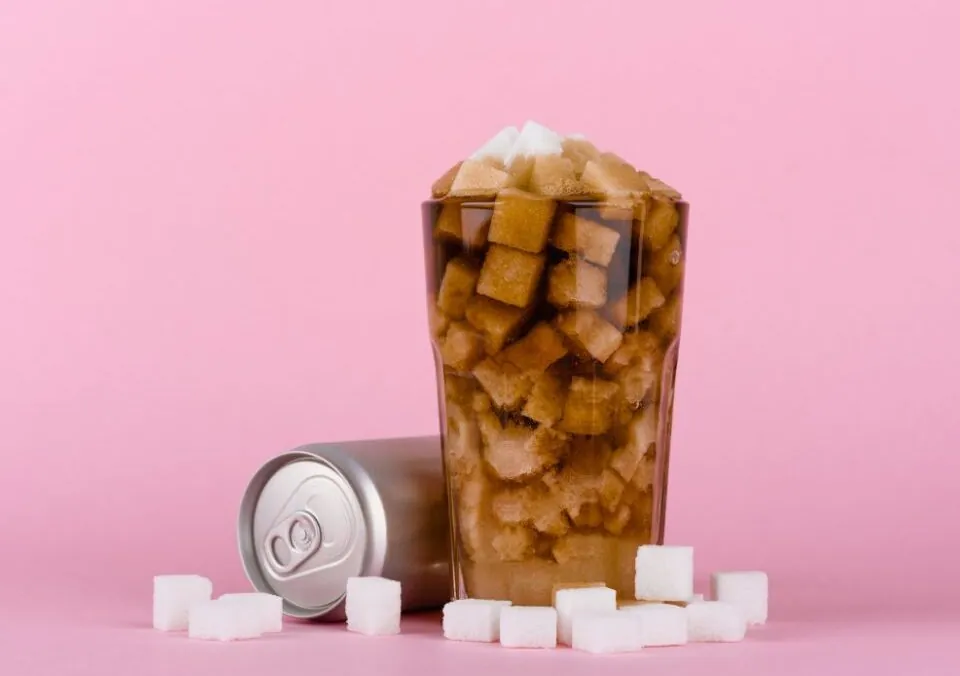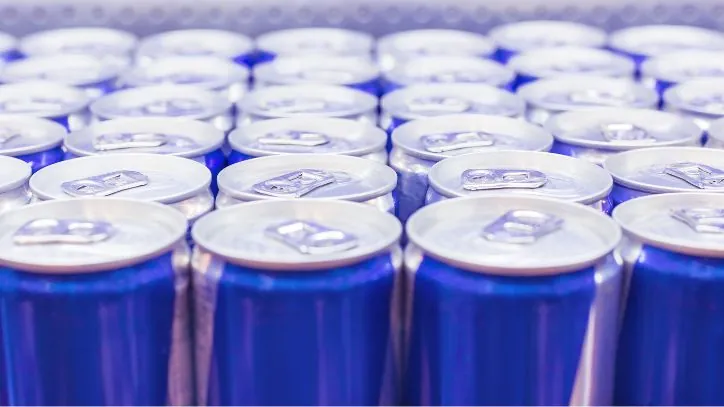Blog
Pay Attention to Unhealthy Ingredients in Beverages

Many of us are attentive to the ingredient labels on the foods we consume. We’ve learned the importance of avoiding foods rich in unhealthy fats, sugars, and empty carbohydrates. However, while we focus on solid food choices, we often overlook the potential health risks lurking in our beverages. Just as certain foods can be detrimental to our health, many drinks fill the same role and should also be scrutinized. This article explores the unhealthy ingredients commonly found in various beverages, their potential health effects, and healthier alternatives to consider.
Understanding Beverage Labels
When it comes to beverages, understanding labels and ingredient lists is crucial. Many drinks may appear appealing and seem healthy at first glance, but closer inspection often reveals hidden sugars, unhealthy fats, and artificial additives.
For example, energy drinks are marketed for their ability to boost stamina and concentration. However, they often contain excessive amounts of sugar, which can lead to weight gain and increase your risk of type 2 diabetes. A typical energy drink can contain around 40 grams of sugar in just one serving. In comparison, the American Heart Association recommends that women limit their sugar intake to no more than 25 grams per day and men to 37.5 grams.
Energy Drinks
Energy drinks have gained immense popularity, particularly among young adults and students. While they promise an immediate energy boost, the reality is quite different. These drinks are often loaded with artificial sugars, high levels of caffeine, and other synthetic components that can lead to health issues. Several studies have linked high caffeine intake, especially from energy drinks, to increased heart rates, high blood pressure, and even heart palpitations.
The combination of caffeine and sugar can lead to a rapid spike in energy followed by a severe crash, leaving the consumer feeling more fatigued than before. Moreover, excessive caffeine consumption can disrupt sleep patterns, promote anxiety, and lead to insomnia. It’s essential to be mindful of your caffeine intake and consider alternatives that won’t lead to these adverse effects.

Sweetened Teas
Sweetened teas are another surprising source of unhealthy ingredients. While tea itself, particularly green tea, is often touted for its health benefits—such as antioxidants and anti-inflammatory properties—many commercially available sweetened teas can be detrimental to your health due to added sugars.
Some sweetened teas contain as much sugar as soda, making them a hidden source of calories and sugar in your diet. For instance, a large bottle of sweetened iced tea can have 50 grams of sugar or more. To put that into perspective, when we consume these beverages frequently, we may inadvertently exceed our daily sugar intake recommendations.
Instead of consuming sweetened teas, consider brewing your own at home. Keeping it simple with plain tea and controlling your own sweeteners (like honey or natural stevia) can help reduce sugar intake.
Fruit Juices: The Deceptive Health Drink
Fruit juices are another beverage that often lulls consumers into a false sense of security. Although they are derived from fruits, they typically lack the fiber and essential nutrients that whole fruits provide. When the juice is extracted from the fruit, most of the beneficial fiber is removed, which is critical for digestion and helping to manage blood sugar levels.
Many fruit juices also contain large amounts of added sugars. These added sugars, combined with the natural sugars from the fruit, can lead to excessive sugar consumption. For example, an 8-ounce glass of orange juice can have as much sugar as a glass of soda. This contributes to increased insulin levels and can pose a significant risk for developing metabolic syndrome and other health issues. Instead of fruit juices, try eating whole fruits or blending your own smoothies that retain the fiber of the fruit.
Coffees Loaded with Additives
Coffee can be a healthy beverage when consumed plain. However, many people add creamers, flavored syrups, and other ingredients that can significantly increase its calorie and sugar content. Specialty coffee drinks sold in cafes can contain excessive amounts of sugar, fat, and empty calories.
For example, a popular flavored coffee beverage can contain upwards of 60 grams of sugar and over 400 calories. When these drinks are consumed regularly, they can contribute to weight gain, increase the risk of diabetes, and lead to other health issues. To enjoy coffee in a healthier way, consider drinking it black or using a small amount of natural sweetener, such as cinnamon or a splash of almond milk.
Sodas: The Ultimate Sugar Bomb
It’s no secret that sodas are loaded with sugars and empty calories, but their prevalence in our diet cannot be emphasized enough. A standard 12-ounce can of soda contains around 39 grams of sugar, which is nearly double the recommended daily sugar limit for women. Regular consumption of soda has been linked to various health problems, including obesity, type 2 diabetes, and tooth decay. Moreover, the high levels of high fructose corn syrup found in many sodas can further exacerbate these issues.
Research shows that the consumption of soft drinks is associated with an increased risk of metabolic syndrome, a cluster of conditions that increase the risk of heart disease, stroke, and diabetes. With little to no nutritional value, sodas should be replaced with healthier alternatives. Try substituting soda with sparkling water infused with fresh fruits or herbs for a refreshing and healthier choice.
The Health Risks of Excess Sugar, Caffeine, and Unhealthy Fats
Excessive consumption of sugars, caffeine, fats, and carbohydrates in beverages can lead to a variety of health issues. Here are some risks associated with each:
- Type 2 Diabetes: High sugar intake can lead to insulin resistance and eventually diabetes. Many studies have demonstrated a clear link between sugary beverages and a higher risk of type 2 diabetes.
- Metabolic Syndrome: This condition is characterized by obesity, high blood pressure, and abnormal cholesterol levels. Consumption of sugar-sweetened beverages is a significant risk factor for developing metabolic syndrome.
- Gut Microbiome Disruption: Sugars and synthetic additives found in many beverages can disrupt the gut microbiome, which has been linked to various health issues, including digestive disorders and immune deficiencies.
- Brain Health Disruption: Excessive sugar and caffeine intake can impact brain health, leading to issues such as cognitive decline and memory issues over time. There’s evidence to suggest that high sugar consumption is negatively correlated with brain function.
Healthier Beverage Alternatives
With the myriad of unhealthy beverage options available, making informed choices is key to maintaining a healthy lifestyle. Here are some healthier alternatives to consider:
- Sparkling Water: This is not only a refreshing substitute for soda, but it’s also calorie-free! You can add citrus slices, cucumber, or fresh herbs for added flavor without the sugar.
- Plain Teas: Consider drinking plain teas—both hot and iced. Not only are they low in calories, but they also offer a wealth of health benefits depending on the type of tea you choose. Green tea, for example, is high in antioxidants and can boost metabolism.
- Black Coffee: Drinking black coffee without added sugar or cream can reap numerous health benefits, including potential longevity and improved brain function.
- Homemade Smoothies: If you crave something sweet, try making smoothies at home. Use whole fruits, leafy greens, unsweetened yogurt, or almond milk to create delicious blends without added sugars.
- Infused Water: Create your own flavored water by adding fresh fruits and herbs to a pitcher of water. This not only keeps you hydrated but also adds a burst of flavor that keeps you refreshed throughout the day.
By being mindful of our beverage choices and opting for healthier alternatives, we can significantly reduce our intake of unhealthy ingredients and improve our overall well-being.
Conclusion
As we continue to focus on leading healthier lifestyles, it’s essential not to ignore the beverages we consume. Energy drinks, sweetened teas, fruit juices, and sodas may seem innocent, but they can have substantial impacts on our health. The excessive sugar, caffeine, and artificial ingredients found in these drinks pose risks that can lead to serious health conditions.
By making informed choices and opting for healthier alternatives, such as sparkling water, plain teas, and homemade smoothies, we can greatly enhance our diets and promote our health. Stay informed, read labels, and choose wisely to become truly mindful of what we pour into our bodies. For more health-related articles, check out the Fill Your Plate blog.
Taking control of our beverage choices is just as crucial as being mindful of the foods we eat. By adopting healthier drinking habits, we pave the way for a healthier, happier life.
By Heide Kennedy, Arizona Farm Bureau Communications Intern


















